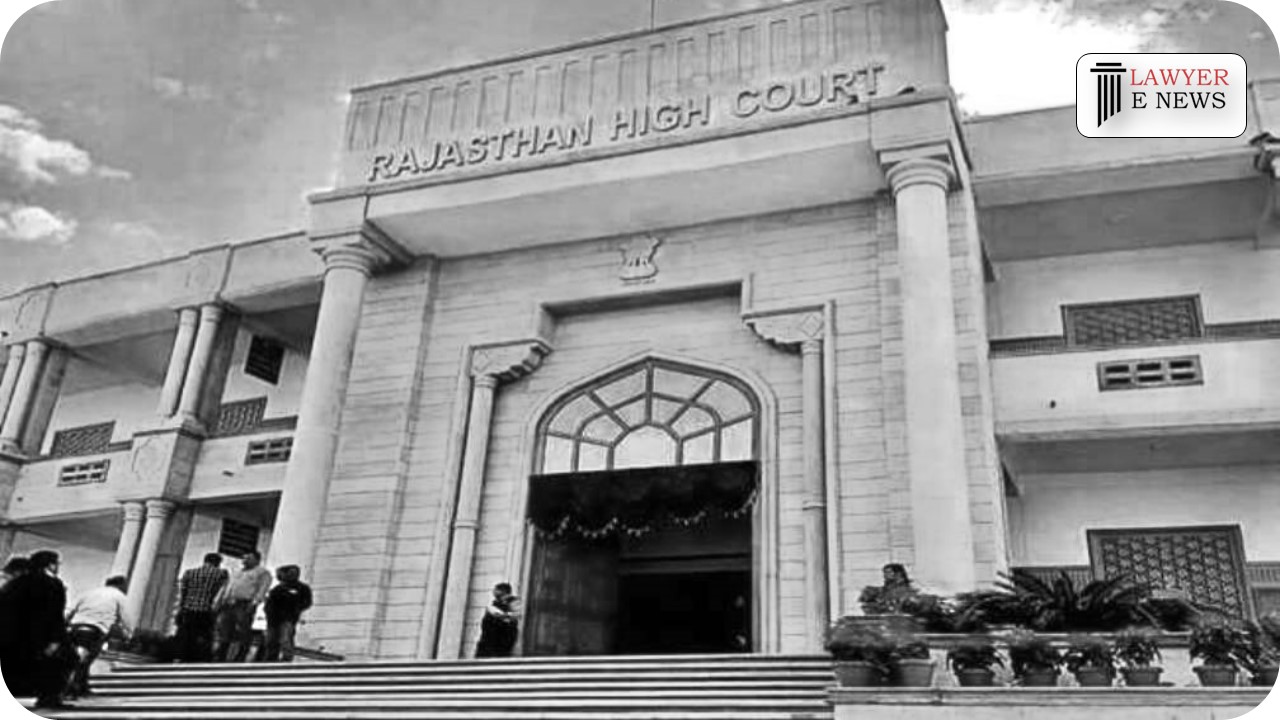-
by Admin
15 February 2026 5:35 AM



The Rajasthan High Court has upheld the continuation of criminal proceedings under Section 138 of the Negotiable Instruments Act against several former employees of M/s Vibrant Academy Pvt. Ltd. The bench, led by Justice Anil Kumar Upman, emphasized that the existence of a legally enforceable debt or liability at the time of cheque presentation is crucial, dismissing the petitions filed by the accused to quash the proceedings.
Legally Enforceable Debt on Date of Maturity: The court highlighted the importance of the debt's existence at the time of the cheque's maturity rather than at the time of its issuance. "The relevant date for determining the existence of a legally enforceable debt or liability under the N.I. Act would be the date of presentation/maturity of the cheque in question," noted Justice Upman. The court clarified that this principle is essential in cases where cheques are issued as security and presented for encashment upon breach of contract terms.
Validity of Security Cheques: Addressing the nature of the cheques issued by the petitioners, the court observed, "The cheques in question were given as security and were undated at the time of issuance. However, once presented and dishonoured, they trigger liability under Section 138 of the N.I. Act, provided there is a legally enforceable debt at the time of presentation." This view aligns with the Supreme Court’s stance in cases like I.C.D.S. Ltd. vs Beena Shabeer and Dashrathbhai Trikambhai Patel vs. Hitesh Mahendrabhai Patel.
The court extensively discussed the legal principles surrounding the issuance and dishonour of post-dated cheques used as security. It reaffirmed that "a post-dated cheque is deemed to have been drawn on the date it bears," and thus, liability is assessed based on the date of maturity. The judgment referenced multiple precedents, including Indus Airways Pvt. Ltd. vs Magnum Aviation Pvt. Ltd., emphasizing the distinction between civil and criminal liability under the N.I. Act.
Justice Upman remarked, "The petitioners cannot shirk their liability to pay the cheque amount to the complainant by taking the plea that there was no legally enforceable debt or liability subsisting on the date of issuance/drawl. The relevant date for determining the existence of a legally enforceable debt or liability under the N.I. Act would be the date of presentation/maturity of the cheque in question."
The High Court's judgment reinforces the judicial interpretation of Section 138 of the N.I. Act, focusing on the legally enforceable debt at the time of cheque maturity. This decision is expected to have significant implications for future cases involving post-dated security cheques, ensuring that the legislative intent of the N.I. Act to uphold the integrity of cheque transactions is maintained.
Date of Decision: May 3, 2024
Paul Mitra vs. State of Rajasthan and Others
